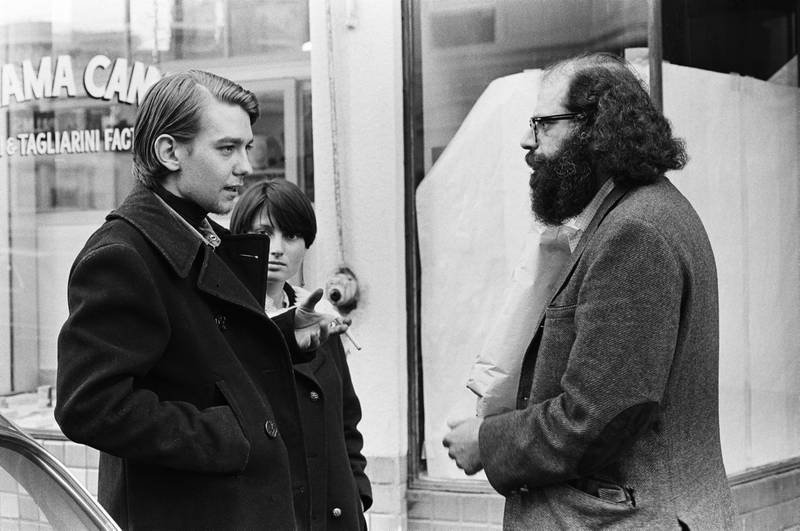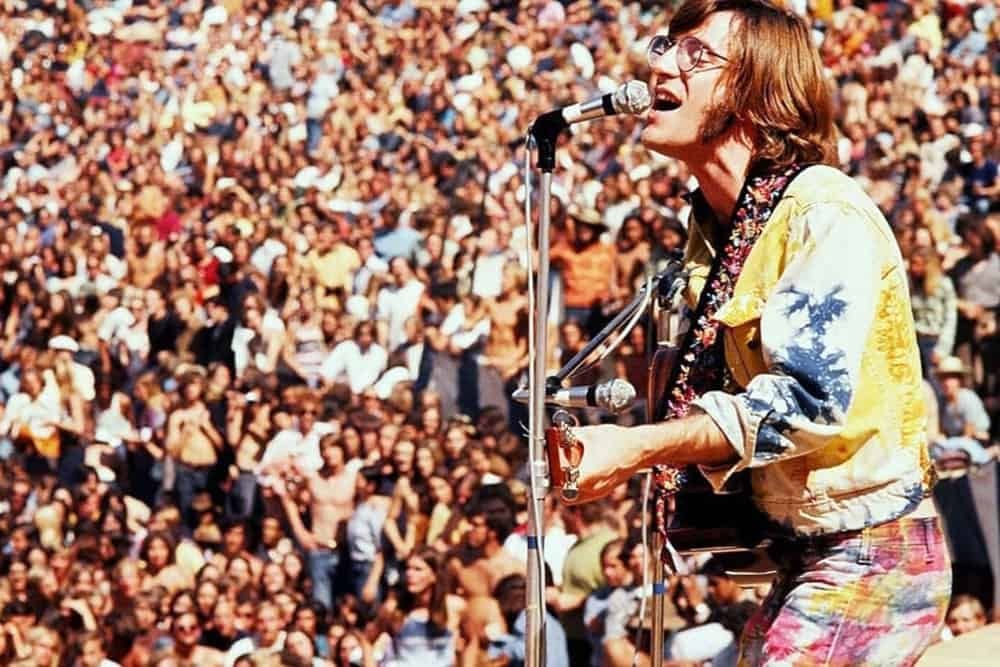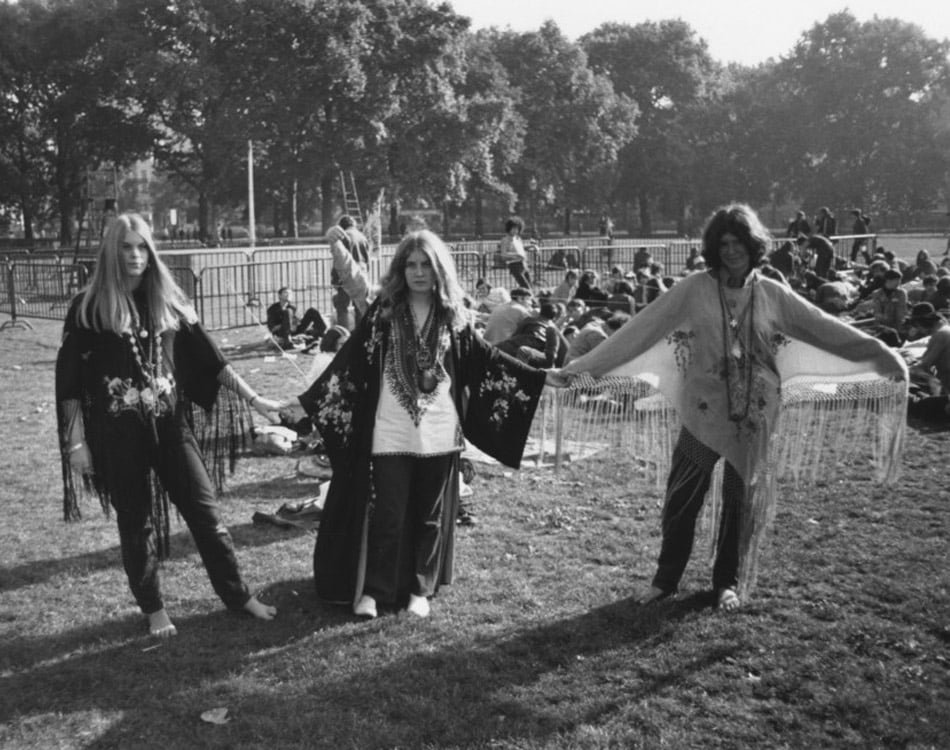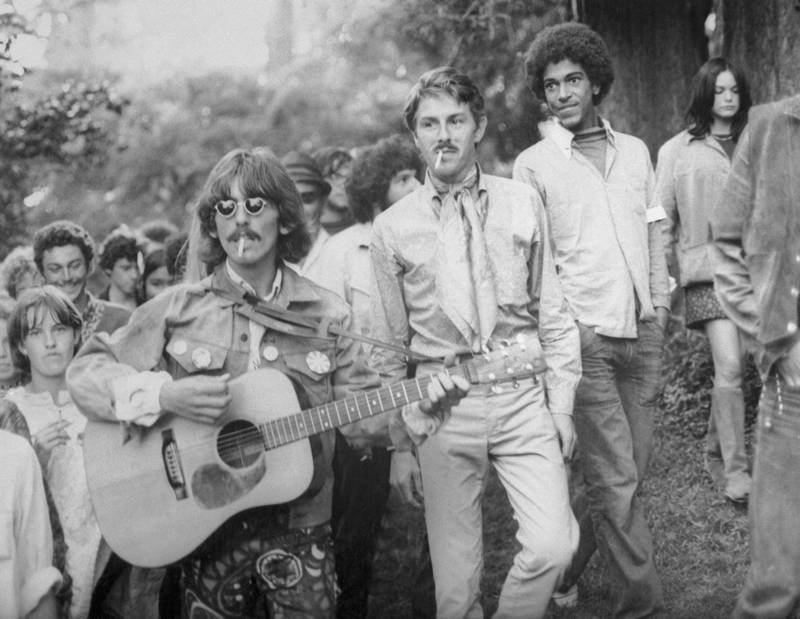Introduction
As a countercultural movement in the 1960s, hippie culture has long been a symbol of youth rebellion and the pursuit of individual freedom in the United States. Taking a stand against conventional norms, hippies embraced ideals of peace, love, and communal living while rejecting mainstream society.
This article delves into the origins of the hippie movement, examines the diverse individuals who embodied its ethos, and speculates on the future of this iconic cultural phenomenon.
Origins of Hippie Culture
The hippie culture sprouted from various influences pressing its core values and principles. The Beat Generation, fronted with celebrities like Allen Ginsberg and Jack Kerouac, discarded notions of materialism in place to seek unconventional forms of expression; consequently, inspiring the countercultural revolution.
Furthering momentum, the Civil Rights Movement fought for equity and social justice along with the anti-war sentiment felt during the Vietnam War. Supplementing these factors was psychedelic drug use, notably LSD; fostering both spiritual probing and alternative outlooks.

People and Lifestyles
Hippies were mainly young people who worked towards establishing a fairer and more inclusive society. Instead of buying into mainstream consumerism, they chose a simpler lifestyle that featured communal living, shared resources, and self-sufficiency. Forsaking material possessions and embracing liberation resulted in many hippies abandoning traditional society to explore alternate ways of living.
Communes provided venues for trying out various social systems as well as seeking peace and love. Demonstrations against the Vietnam War expressed non-violence and concord. Music festivals like Woodstock served as iconic events honoring liberty of speech and the power of music in unifying individuals. Notable singers, musicians, and poets including Jimi Hendrix, Janis Joplin, and Bob Dylan became symbols of the counterculture motivating subsequent generations with their imaginative works.

Legacy and Cultural Impact
The hippie movement of the 1960s and 70s was primarily made up of young people who yearned for a more equitable and open society. They eschewed conventional consumerism, advocating instead for simpler lifestyles with communal living, shared resources, and sustainability. This aversion to material wealth went hand-in-hand with their pursuit of personal freedom, leading many to reject traditional methods of living in favor of alternative ones.
As a result, communes were created as havens for exploring new social structures. A major part of their mission was spreading awareness about peace and love, which they championed through regular peaceful protests against the Vietnam War. Such demonstrations harkened back to iconic events like Woodstock that celebrated unity, self-expression and the power of music to bring people together. Famous artists such as Jimi Hendrix, Janis Joplin and Bob Dylan emerged as the cult figures of counterculture with their creativity influencing generations to come.

The Future of Hippie Culture
As we look to the future, it is essential to explore how hippie culture might develop and adjust to our continually changing times. Though the countercultural movement of the 1960s was a result of particular socio-political conditions, its core principles of peace, love, and individual liberty remain just as pertinent in today’s world as it faces various issues.
The way forward for hippie culture lies in its capability to stimulate the upcoming generations to question received notions, oppose injustice, and back environmental defense. This movement’s focus on community living and sustainability can act as a template for constructing more integrated and eco-friendly societies.
In this era of augmented global connectivity, digital activism and social media present alternative means to transmit the notion of peace, love, and progressivism. A worldwide community can now come together virtually for championing causes and amplifying voices that are compatible with the underlying philosophy of hippie culture.
Conclusion
Hippie culture emerged as a vibrant countercultural movement in the 1960s, fueled by a rejection of mainstream values and a desire for personal freedom. Its influence has left an indelible mark on society, inspiring subsequent generations to challenge norms and pursue alternative ways of living.
While the specific era of the 1960s may have passed, the values of peace, love, and personal freedom continue to resonate, adapting to the modern world. The future of hippie culture lies in its ability to evolve and inspire, reminding us of the power of unity, compassion, and the pursuit of a more harmonious world.



